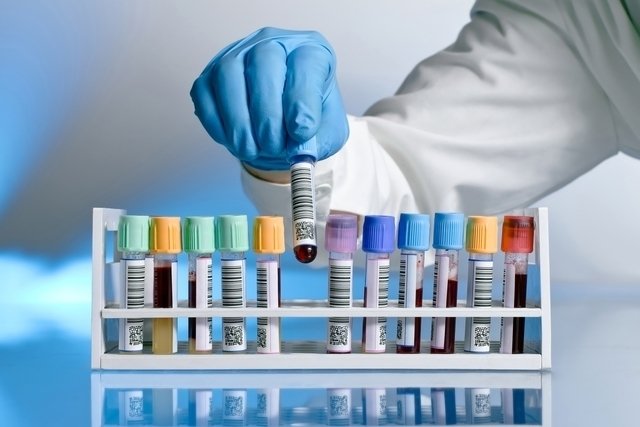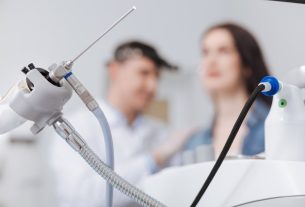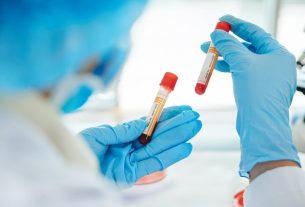TGO and TGP, also known as transaminases, are enzymes normally measured with the aim of evaluating liver health. TGO, known as oxaloacetic transaminase or AST (aspartate aminotransferase) is produced in various tissues, such as the heart, muscles and liver, and is located inside liver cells.
Therefore, when there is an increase in TGO levels alone, it is common for it to be related to another situation that is not related to the liver, because in the case of liver damage, the damage must be more extensive so that the liver cells rupture. and lead to the release of TGO into the blood.
On the other hand, TGP, known as pyruvic transaminase or ALT (alanine aminotransferase), is produced exclusively in the liver and, therefore, when there is any change in this organ, there is an increase in the amount circulating in the blood. Find out more about TGP.

What are worth for
The TGO and TGP exam is indicated to evaluate the functioning of the liver and/or to investigate the presence of any changes in this organ when there are symptoms such as abdominal pain or swelling, yellowish skin and/or eyes, nausea, vomiting, excessive tiredness, malaise. – general feeling, fever, loss of appetite, weight loss without apparent cause, itching, light stools or dark urine, for example. See other symptoms of liver disease.
Furthermore, the TGO and TGP test may also be recommended by the doctor in cases of other diseases that can impair blood flow to the liver and interfere with its function, such as heart attack or muscle injuries, for example.
Read too: 11 symptoms of liver problems (with online test)
Normal values
TGO and TGP values may vary depending on the laboratory, however, in general, the values considered normal in blood are:
- GTO: between 5 and 40 U/L;
- TGP: between 7 and 56 U/L.
Although TGO and TGP are considered liver markers, these enzymes can also be produced by other organs, especially the heart in the case of TGO.
Therefore, it is important that the exam evaluation is carried out by the doctor who requested the exam, as this way it is possible to check whether there has been a change and, if so, to establish the cause.
Do you have questions about your exam results?
The TGO and TGP may be altered, being above or below the reference values, the main causes being:
1. High TGO and TGP
High TGO and TGP, with values much higher than the reference values, normally indicate liver damage, such as:
- Acute or chronic viral hepatitis, or alcoholic hepatitis;
- Fulminant hepatitis or ischemic hepatitis;
- Cirrhosis due to excessive consumption of alcoholic beverages;
- Fatty liver or presence of liver abscess;
- Liver tumor;
- Hemochromatosis or alpha-1-antitrypsin deficiency;
- Obstruction of the bile ducts;
- Wilson’s disease or Budd-Chiari syndrome.
In addition, high TGO and TGP may also indicate other conditions, such as muscle damage, stroke, celiac disease or acute pancreatitis, and may also be caused by abusive use of illicit drugs or use of medication for a long period and/or without medical advice.
TGO and TGP may also be high in the case of severe pre-eclampsia, eclampsia or HELLP syndrome, due to decreased blood flow to the liver and damage to that organ.
In addition to evaluating TGO and TGP levels, to confirm liver damage and its extent, the doctor applies the Ritis ratio, which is the ratio between TGO and TGP levels and when greater than 1 is indicative of damage. more severe, and treatment should be started as soon as possible to prevent disease progression.
Read too: Tests to evaluate the liver: blood, imaging and biopsy
2. Low TGO and TGP
Low TGO and TGP may indicate changes in the kidneys, such as urinary infection or acute kidney injury.
In addition to evaluating TGO and TGP, the doctor must order other tests that evaluate the kidneys, such as urine testing, cretinin, urea, sodium or potassium in the blood, as well as imaging tests, such as ultrasound or magnetic resonance imaging, for example.
Read too: Creatinine: what it is, reference values and when to take the test
3. TGO changed
When only the TGO is altered, for example, it is possible that there is some change in the heart, such as a heart attack, heart failure or cardiac ischemia, for example, since the TGO is also a cardiac marker.
Therefore, in this situation, the doctor may recommend tests to assess heart health, such as measuring troponin, myoglobin and creatine phosphokinase (CK). Find out more about TGO.
4. Altered TGP
Altered TGP or ALT, especially when the levels are low, is generally not a cause for concern, and is normal when the person has no symptoms.
However, some health conditions can cause low TGP, such as vitamin B6 deficiency, taking hormonal medications, smoking or exercising. See other causes of low TGP.
On the other hand, high TGP may indicate liver problems.
Read too: High TGP: what it is, what it means (and how it is treated)
Medicines that alter TGO and TGP
Some medications can alter the levels of TGO and TGP in the blood, as they cause inflammation or swelling in the liver, altering its functioning, the main ones being:
- Analgesicssuch as paracetamol;
- Anti-inflammatoriessuch as nimesulide or acetylsalicylic acid;
- Anabolics;
- Acontraceptives oral;
- Antibioticssuch as erythromycin, ciprofloxacin, sulfamethoxazole + trimethoprim, amoxicillin + clavulanate, or isoniazid;
- Antiarrhythmicslike amiodarone;
- Remedies for high cholesterolsuch as statins;
- Antiepilepticssuch as valproic acid or phenytoin;
- Antifungalssuch as ketoconazole or terbinafine;
- Chemotherapeuticssuch as methotrexate, asparaginase, imatinib, or Pazopanib;
- Medicinal plantssuch as comfrey, cascara sacred or Kava kava.
These medications can interfere with the results of the TGO and TGP test because most medicines, supplements or medicinal plants are metabolized by the liver to be eliminated by the body.
When they are taken for a long time or in quantities greater than those recommended by the doctor, they can promote inflammation of the liver and, in some cases, lead to the emergence of drug-induced hepatitis, resulting in an increase in the concentration of these enzymes in the blood.
Furthermore, some medications, such as paracetamol, even in normal doses, can cause drug-induced hepatitis and alter TGO and TGP tests. Understand better what medical hepatitis is and how it is treated.

Sign up for our newsletter and stay up to date with exclusive news
that can transform your routine!
Warning: Undefined array key "title" in /home/storelat/public_html/wp-content/plugins/link-whisper-premium/templates/frontend/related-posts.php on line 12
Warning: Undefined array key "title_tag" in /home/storelat/public_html/wp-content/plugins/link-whisper-premium/templates/frontend/related-posts.php on line 13



